Description
Caberlin 0.25mg is primarily used to treat hyperprolactinemia, a condition defined by a high level of prolactin in the blood. Cabergoline, the main component in this medicine, is a dopamine receptor agonist. Cabergoline acts by replicating the function of dopamine, a neurotransmitter that controls prolactin production in the brain. In this detailed overview, we will go over the uses, benefits, and possible side effects of Caberlin 0.25 mg, giving you an understanding of the medication.
What is Caberlin 0.25mg?
Caberlin 0.25mg contains cabergoline, a very effective dopamine receptor agonist. This medicine is extensively used to treat hyperprolactinemia, a disorder that can lead to infertility, sexual dysfunction, and bone loss. Cabergoline reduces prolactin levels in the blood, reducing these side effects.
how to work Caberlin 0.25mg
Cabergoline activates dopamine receptors in the brain, which reduces prolactin release from the pituitary gland. This action promotes regular menstrual cycles in women, improves fertility, and reduces symptoms such as excessive breast milk production and hormonal imbalances. Caberlin is usually taken orally, with or without meals, as directed by the doctor. Its efficacy and dose might vary depending on the individual’s reaction and medical condition, thus frequent monitoring and follow-up are required to achieve the best treatment results.
Uses of Caberlin 0.25mg
Treatment of Hyperprolactinemia
The primary use for Caberlin 0.25mg is to treat hyperprolactinemia. High prolactin levels can disrupt the normal working of the reproductive system, causing irregular menstruation periods in women and erectile dysfunction in males. Cabergoline promotes the restoration of normal reproductive function by reducing prolactin levels.
Management of Prolactinomas
Prolactinomas are benign pituitary gland tumors that generate an excess of prolactin. Cabergoline is often used as a first-line therapy for prolactinomas because it effectively reduces the tumor and lowers prolactin levels.
Support in Assisted Reproductive Techniques
Caberlin 0.25mg is sometimes used in fertility treatments to control prolactin levels in women undergoing help reproductive methods (ART), such as in vitro fertilization. Maintaining right prolactin levels can improve the odds of a successful conception.
Adjunctive Therapy in Parkinson’s Disease
Although not its main indication, cabergoline has been used as an adjuvant medication in the treatment of Parkinson’s disease. It works by activating dopamine receptors, which may relieve some of the motor symptoms associated with this neurodegenerative condition.
Benefits of Caberlin 0.25mg
Effective Prolactin Suppression
One of the main benefits of Caberlin 0.25mg is its ability to reduce prolactin levels. Cabergoline has been shown in studies to be very effective at controlling prolactin levels, hence alleviating the symptoms of hyperprolactinemia.
Tumor The reduction
Caberlin 0.25mg has a significant benefit for patients with prolactinomas in terms of tumor reduction. Cabergoline can reduce tumor growth by reducing prolactin levels, perhaps alleviating accompanying symptoms such as headaches and visual problems.
Improved Reproductive Function
Caberlin 0.25mg can help in the recovery of normal reproductive function by regulating prolactin levels. Women may enjoy regular menstrual cycles, while men may find improvements in sexual function, therefore improving overall quality of life.
Side Effects of Caberlin 0.25mg
Common Side Effects
- Nausea and Vomiting
- Dizziness and Fatigue
- Headache
Serious Side Effects
- Heart Valve Issues
- Fibrotic Complications
- Allergic Reactions
Precautions and Interactions
Precautions
Patients with a history of heart disease, high blood pressure, or fibrotic diseases must take care while using Caberlin 0.25 mg. To ensure the medication’s safety, it must be monitored regularly and discussed with a doctor.
Drug Interactions
Caberlin 0.25mg can interact with other drugs, affecting their efficacy or raising the risk of side effects. It is important to inform your doctor about any prescriptions you are presently taking, including over-the-counter medications and vitamins. Important encounters include:
- Antipsychotic Medications: These can decrease the efficacy of cabergoline.
- Macrolide Antibiotics: Drugs like erythromycin may raise cabergoline levels in the blood, increasing the likelihood of negative effects.
- Dopamine Antagonists: Cabergoline’s effects may be counteracted using medications that inhibit dopamine receptors.

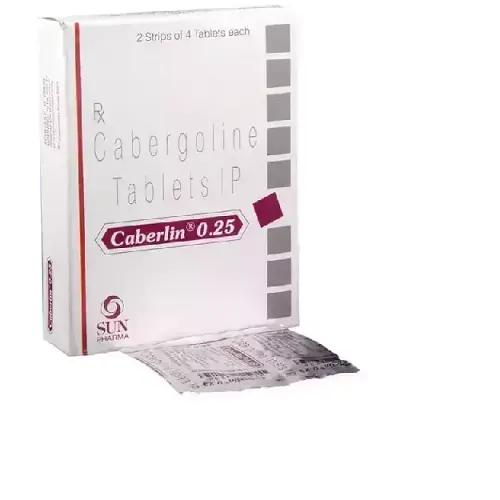
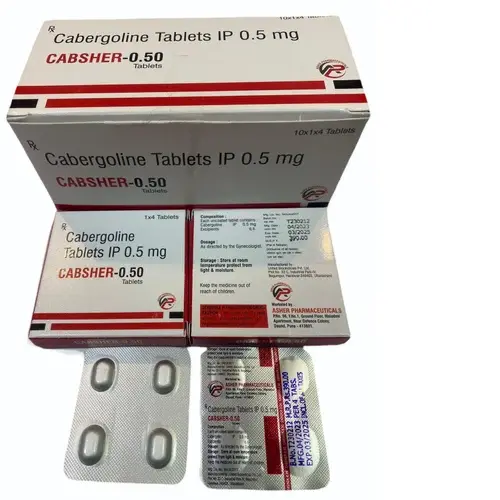
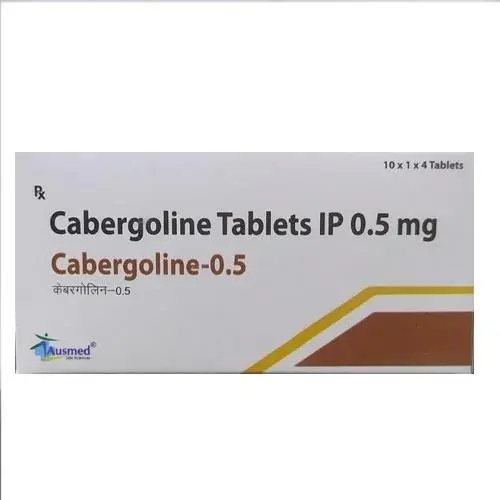
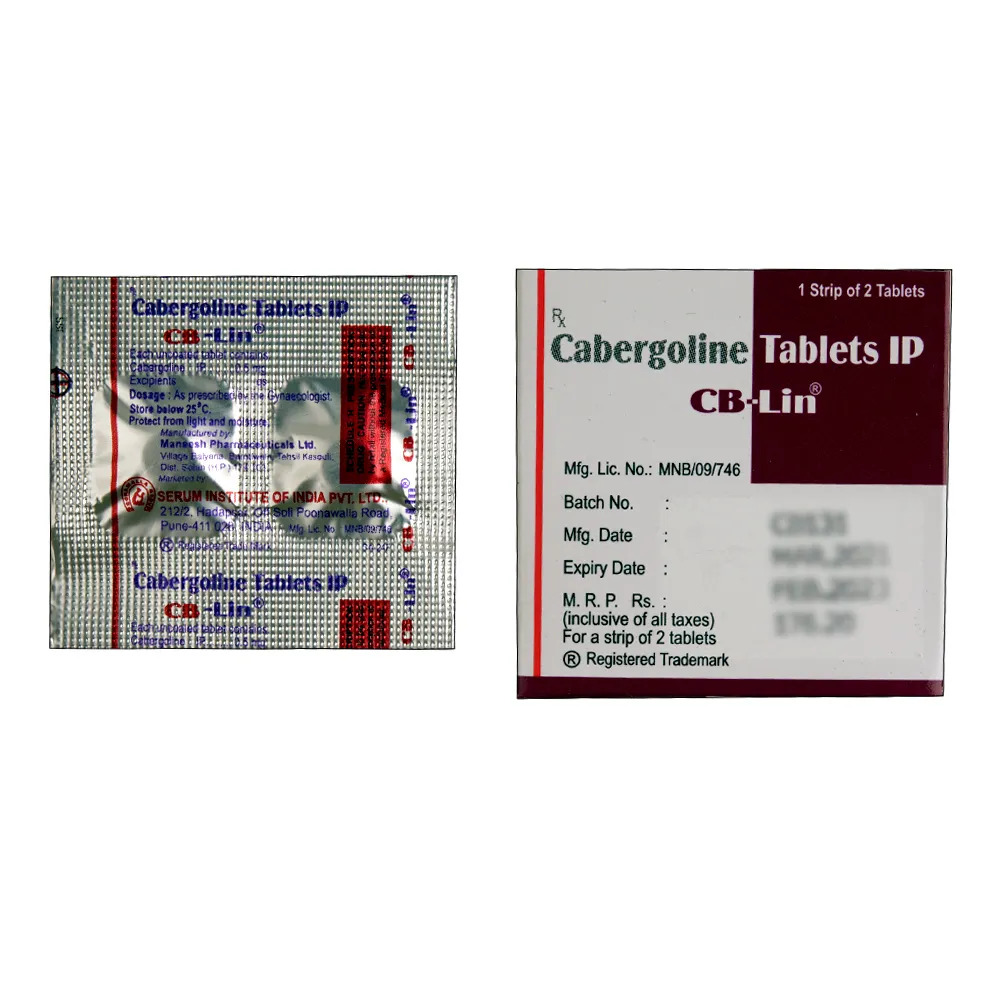
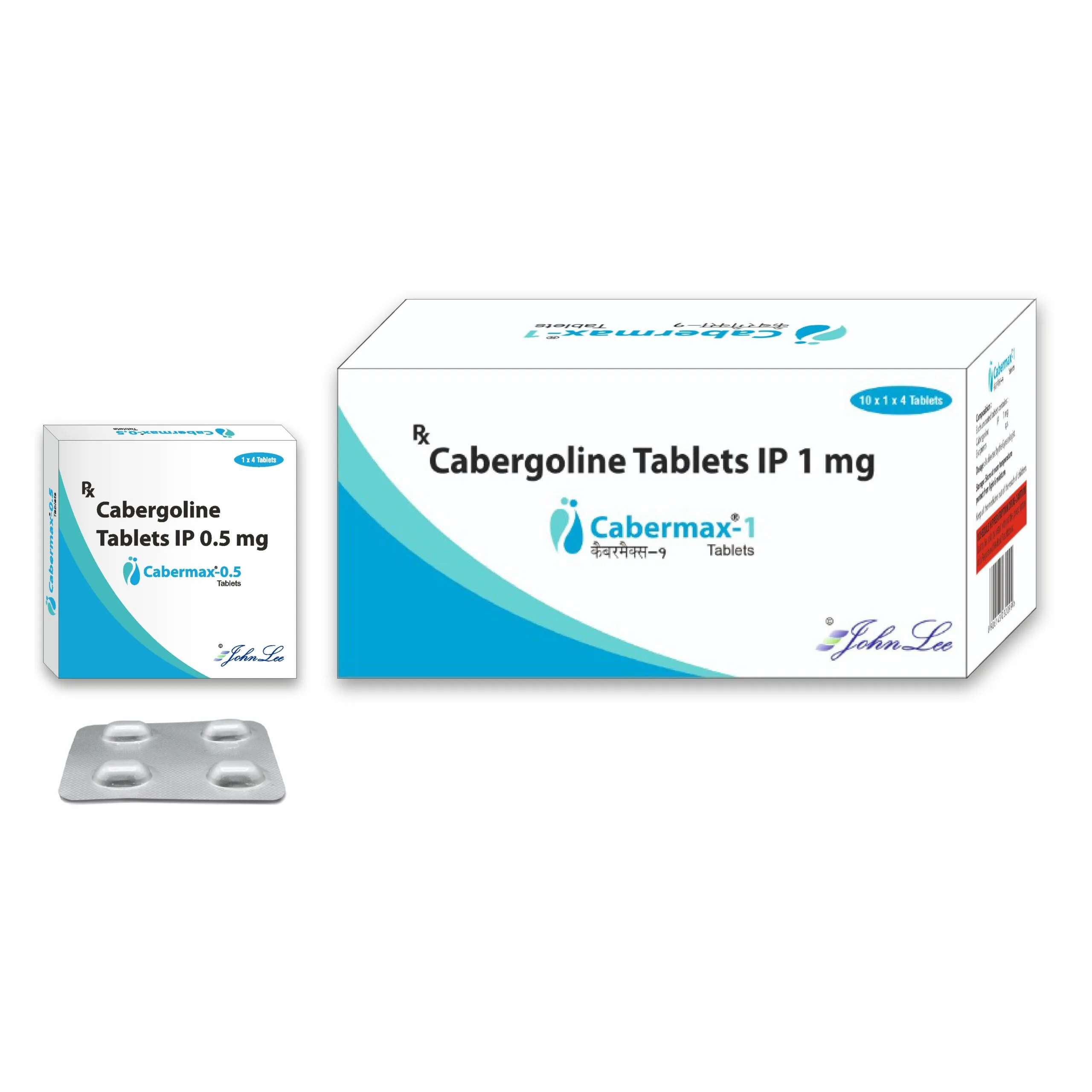
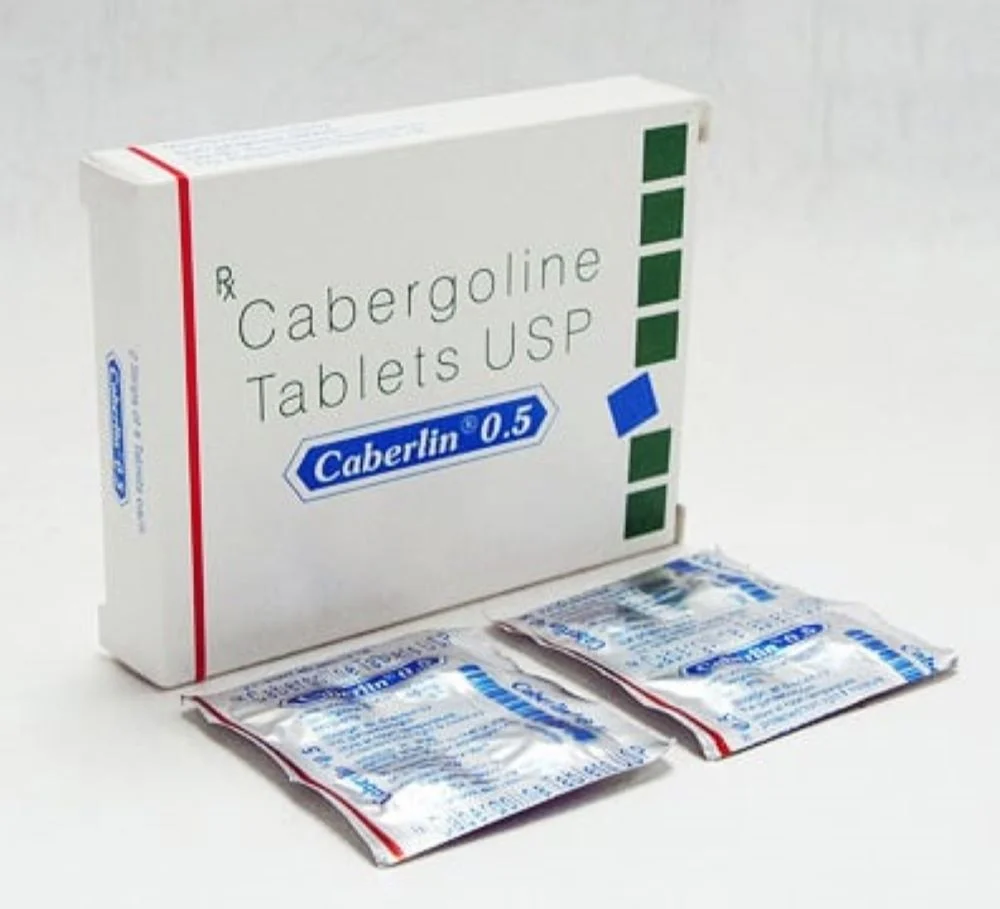
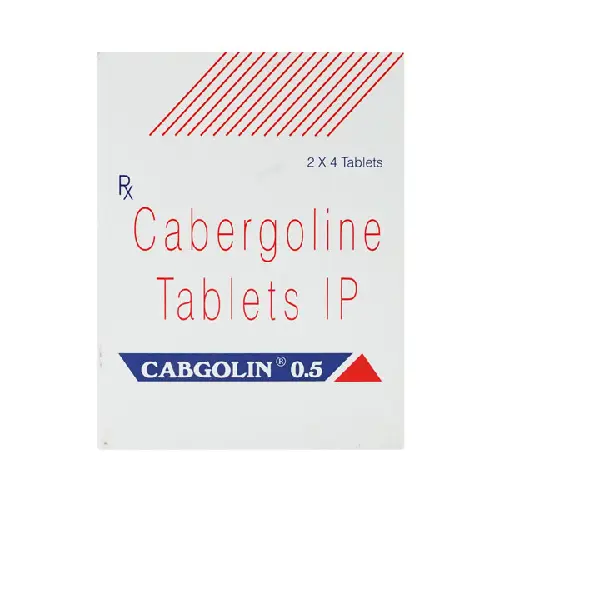
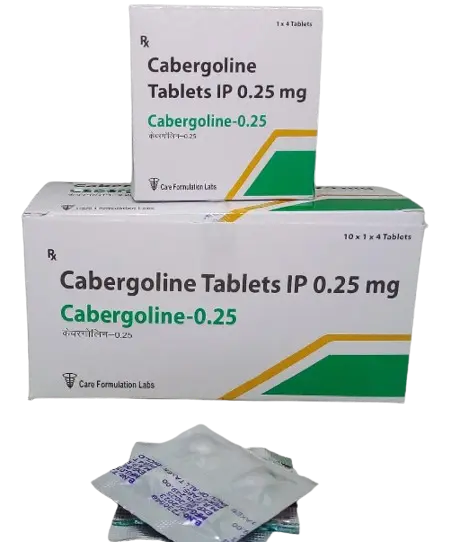
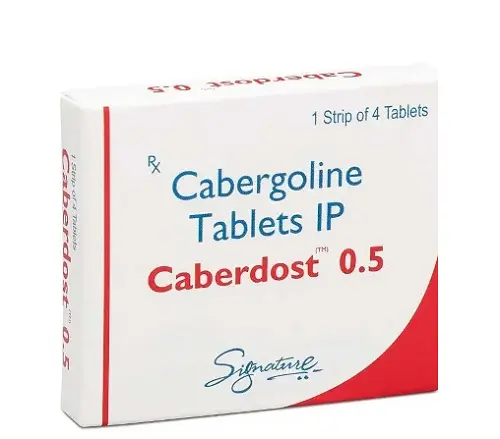
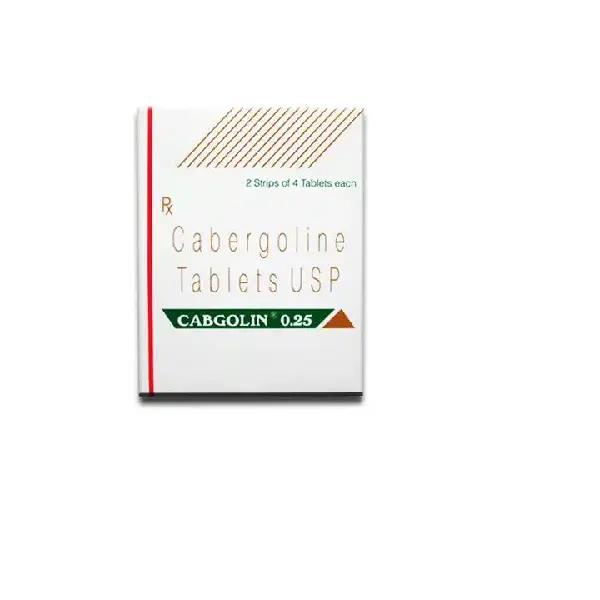
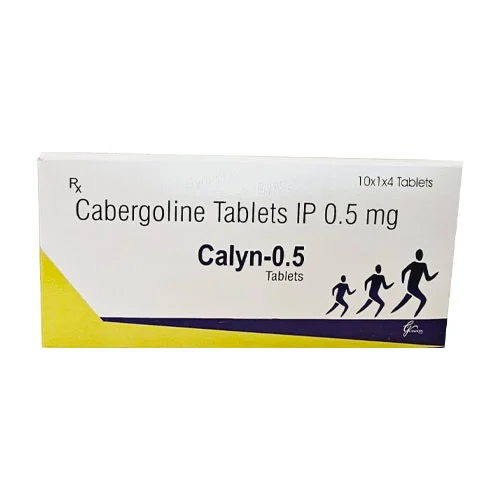

Reviews
There are no reviews yet.